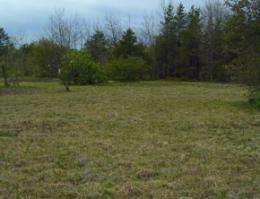The past matters to plants

(PhysOrg.com) -- It's commonly known that plants interact with each other on an everyday basis: they shade each other out or take up nutrients from the soil before neighboring plants can get them. Now, researchers at the University of Michigan have learned that plants also respond to the past.
The research appears in the February 2010 issue of The American Naturalist.
Emily Farrer, Deborah Goldberg, and Aaron King modeled four years of population fluctuations in four species common to the Michigan dry sand prairie to determine how plants interacted with each other. They found that plants tended to compete, or negatively affect one another, over the summer, fall, and spring; but interestingly the researchers also found that the more crowded together plants were in one growing season, the more their growth was enhanced the following year.
"For example, if a species had a large, dense population a year ago, this would promote current population growth, even though the plants are currently competing," said Farrer, a graduate student in the U-M Department of Ecology & Evolutionary Biology.
These time-lagged interactions may be due to effects from plant litter, Farrer said. After plants die back over the winter, the dead plant material starts to decompose, releasing nutrients that encourage plant growth. The litter layer also holds in soil moisture, a boon to plants struggling to survive in the dry environment.
The positive effect also may be due to the fact that the plants are perennial and can bank resources in below-ground roots and rhizomes until the following year, when they can be drawn upon to boost growth.
"Scientists had thought that lagged interactions do not occur in plants, but with the use of detailed population censuses and complex mathematical models, we showed that they do occur, can be measured, and can have significant impacts on plant population growth," Farrer said. "Finding such interactions in this study raises the possibility that they may be more widespread in plants than previously thought."
More information: www.journals.uchicago.edu/toc/an/current
Provided by University of Michigan















